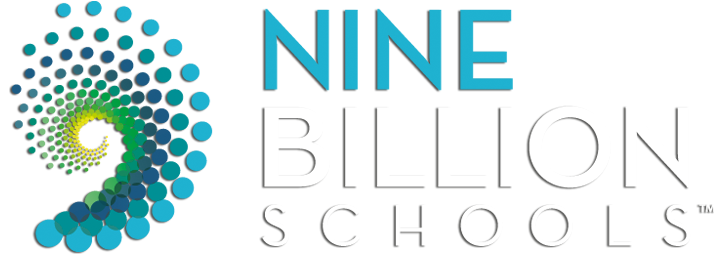GUEST POST: Understanding Life-Deep Learning
By Megan Zahneis
When I was little, I was the kid that consistently ended my weekly trip to the local library by overestimating the number of books I could carry to the car. I’d hoist a tote bag over my shoulder Santa-style, chock-full of knowledge on my obsession du jour – at times it was French, photography, Shakespeare and ventriloquism.
Though I had no way of knowing it at the time, these library outings – and the hours spent sprawled on the dining room floor with a book thereafter – were my first introductions to the phenomenon of life-deep learning. All I knew was that, for the moment, I was struck by a compulsion to understand E=mc2 or the way ancient Egyptians lived.
That was me engaging in life-deep learning, perhaps the least-understood part of the L3 learning triumvirate. But there’s a reason life-deep learning is at the core of the 9 Billion Schools philosophy. It’s all about delving into a topic as thoroughly and thoughtfully as possible, whether that’s to write a term paper or to indulge one’s personal curiosities.
It’s about wanting to know everything there is to know about a particular subject, about immersing yourself in something – anything. More than ever, we have the power to engage in life-deep education, as advances in technology let us practice French with a tutor in Paris in real time, pick up photography on our cell phones or don a virtual-reality headset to tour the pyramids.
But subject-specific study is only part of the life-deep learning equation. The second dimension of life-deep learning means digging into the big stuff – epistemology, theology, philosophy, morality – to answer some of the most existential questions on earth. That, arguably, is the most important learning and thinking we’ll ever do.
You know, just pondering the essence of humanity itself. See why we call it life-deep learning?
The truth is that the resources for life-deep learning are at our disposal; all that’s left is for us to open our minds, to dedicate some brain space to thinking deeply and to consider viewpoints we hadn’t before.
Just maybe don’t tackle Shakespeare at age 10.
Megan Zahneis is a student at Miami University studying journalism, leadership and disability.






